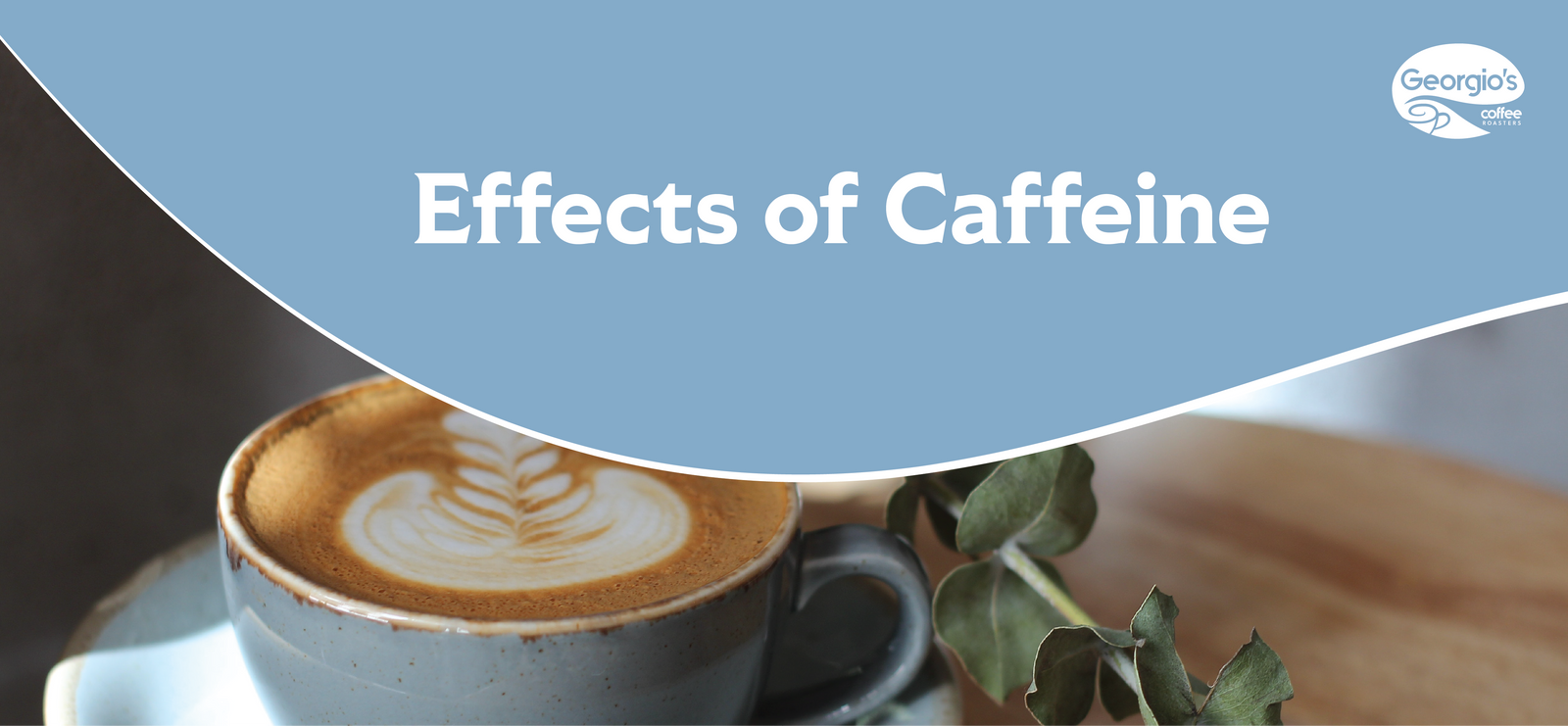The Influence of Caffeine

Caffeine, a widely consumed stimulant found in coffee, tea, and numerous other beverages and foods, has long been recognized for its ability to influence mood.
As one of the most widely used psychoactive substances in the world, caffeine has captured the attention of scientists and researchers who aim to understand its effects on human mood and behavior.
This article delves into the scientific evidence surrounding the impact of caffeine on mood, exploring both the positive effects on alertness and focus, as well as the potential negative side effects of excessive consumption.
Over the years, numerous studies have shed light on the relationship between caffeine and mood, providing valuable insights into the mechanisms through which caffeine exerts its effects.
The positive effects of caffeine on mood are primarily attributed to its ability to stimulate the central nervous system, leading to increased alertness and improved cognitive function.
This stimulant effect is achieved through caffeine's ability to bind to adenosine receptors in the brain, blocking the inhibitory effects of adenosine and promoting the release of other neurotransmitters, such as dopamine and norepinephrine.
By doing so, caffeine can enhance mood, increase attention, and boost overall mental performance. However, it is important to note that excessive consumption of caffeine can have detrimental effects on mood.
While moderate caffeine intake is generally considered safe, consuming large amounts of caffeine can lead to symptoms of anxiety, irritability, restlessness, and even insomnia. These negative side effects are often associated with caffeine's ability to overstimulate the central nervous system, leading to a state of hyperarousal.
Therefore, managing caffeine intake is crucial for maintaining optimal mood balance and avoiding the potential negative consequences associated with excessive consumption.
The Science Behind Caffeine's Impact on Mood
The impact of caffeine on mood is a subject of scientific inquiry, with researchers seeking to understand the underlying mechanisms through which this stimulant exerts its effects on human emotions.
Numerous studies have investigated the relationship between caffeine consumption and mood, revealing intriguing findings. Caffeine acts as a central nervous system stimulant by blocking the adenosine receptors in the brain, which results in increased alertness and a decrease in fatigue. This mechanism is believed to be responsible for the mood-enhancing effects of caffeine.
By preventing the binding of adenosine, caffeine promotes the release of other neurotransmitters such as dopamine and norepinephrine, which are associated with feelings of pleasure and improved mood.
Moreover, caffeine has been found to influence the production of certain hormones that play a role in mood regulation. For instance, it has been observed that caffeine can increase the release of serotonin, a neurotransmitter known for its mood-enhancing properties. Serotonin is often referred to as the 'feel-good ' hormone, as it is involved in regulating mood, appetite, and sleep. By increasing serotonin levels, caffeine may contribute to a more positive mood state.
Additionally, caffeine has been found to increase the production of endorphins, which are natural painkillers and mood elevators. This further supports the notion that caffeine can have a positive impact on mood by influencing the release of specific hormones and neurotransmitters.
The science behind caffeine's impact on mood is a fascinating area of research. Through its effects on adenosine receptors, neurotransmitter release, and hormone production, caffeine has the potential to enhance mood and promote feelings of well-being.
Understanding these underlying mechanisms can provide valuable insights into the potential therapeutic applications of caffeine in the management of mood disorders. Further research is warranted to fully elucidate the complex interactions between caffeine and mood and to explore the potential benefits and risks associated with its consumption.
The Positive Effects of Caffeine on Alertness and Focus
Enhancing alertness and focus, caffeine has been extensively studied for its potential cognitive benefits. Numerous studies have demonstrated the positive effects of caffeine on alertness and concentration, making it a popular choice for individuals seeking to enhance their mental performance.
Caffeine acts as a central nervous system stimulant by blocking the adenosine receptors in the brain, which results in increased neural activity and improved cognitive function.
One of the primary ways caffeine enhances alertness is by blocking the effects of adenosine, a neurotransmitter that promotes sleep and relaxation. By inhibiting adenosine, caffeine prevents its sedative effects, leading to increased wakefulness and heightened mental alertness. This mechanism of action makes caffeine an effective tool for combating fatigue and improving focus, especially during periods of prolonged wakefulness or sleep deprivation.
Caffeine has been found to improve attention and concentration. Research has shown that caffeine can enhance cognitive performance by increasing the release of dopamine and norepinephrine, neurotransmitters involved in attention and focus. These neurotransmitters play crucial roles in regulating arousal levels and promoting optimal cognitive functioning. By modulating their release, caffeine can enhance mental performance, allowing individuals to stay more engaged, attentive, and focused on tasks at hand.
Caffeine's positive effects on alertness and focus have been well-documented through scientific research. By blocking adenosine receptors and increasing the release of dopamine and norepinephrine, caffeine enhances wakefulness, combats fatigue, and improves cognitive performance.
As a result, it is no wonder that caffeine is widely consumed by individuals seeking to boost their mental capabilities and optimize their productivity.
The Negative Side Effects of Excessive Caffeine Consumption
Excessive consumption of caffeine can result in a cascade of unfavorable consequences that can leave individuals feeling like they are being carried away in a turbulent sea of jitteriness and restlessness.
While moderate caffeine intake can provide a boost in alertness and focus, going overboard can have detrimental effects on both physical and mental well-being.
First and foremost, excessive caffeine consumption can lead to increased anxiety and nervousness. The stimulating effects of caffeine can trigger the release of stress hormones, such as cortisol, which can heighten feelings of tension and unease. This can manifest as restlessness, irritability, and even panic attacks in some individuals.
Additionally, consuming too much caffeine can disrupt sleep patterns, leading to insomnia and further exacerbating feelings of restlessness and fatigue. Excessive caffeine intake can also result in gastrointestinal issues. Caffeine acts as a diuretic, increasing urine production and potentially causing dehydration. This can lead to digestive problems such as acid reflux, heartburn, and stomach discomfort. Additionally, caffeine can stimulate the production of stomach acid, which can worsen symptoms for individuals with pre-existing conditions like gastroesophageal reflux disease (GERD). Lastly, excessive caffeine consumption can also lead to frequent urination and even bladder irritation.
While caffeine can provide a temporary boost in alertness and focus, consuming excessive amounts can have negative consequences on both physical and mental well-being. It is important to be mindful of one's caffeine intake and to find a balance that allows for the positive effects without experiencing the negative side effects.
Managing Caffeine Intake for Optimal Mood Balance
Optimizing the balance of caffeine consumption is crucial in maintaining a stable and harmonious emotional state.
Caffeine, when consumed in moderation, can have positive effects on mood by increasing alertness, focus, and overall cognitive performance. It stimulates the central nervous system and blocks adenosine receptors, leading to increased dopamine and serotonin levels, which are neurotransmitters associated with feelings of pleasure and happiness.
By providing a temporary boost in energy and enhancing mental clarity, caffeine can promote a positive mood and improve one's overall sense of well-being.
It is important to note that excessive caffeine consumption can have detrimental effects on mood. Consuming large amounts of caffeine can lead to symptoms such as anxiety, restlessness, irritability, and even insomnia. These negative side effects can significantly impact one's emotional state, leading to feelings of unease and discomfort.
It is essential to manage caffeine intake and find the optimal balance that works best for each individual. This may involve limiting the daily caffeine intake, avoiding caffeine consumption close to bedtime, and being mindful of the sources of caffeine in one's diet.
By being aware of the potential negative effects and making conscious choices about caffeine consumption, individuals can better regulate their mood and maintain a harmonious emotional state.
Alternative Strategies for Boosting Mood Without Caffeine
An exploration of alternative strategies for uplifting one's emotional state without relying on the stimulating effects of caffeine reveals a plethora of options to consider. These alternatives not only provide a natural way to boost mood but also avoid the potential side effects and dependence associated with caffeine consumption.
Here are three alternative strategies that have been shown to be effective:
- Exercise: Engaging in physical activity releases endorphins, which are known as 'feel-good ' hormones. Regular exercise has been proven to improve mood and reduce symptoms of depression and anxiety. Whether it's going for a run, practicing yoga, or participating in a team sport, incorporating exercise into daily routines can significantly enhance emotional well-being.
- Mindfulness and meditation: These practices involve focusing one's attention on the present moment and cultivating a sense of calm and awareness. Research has shown that mindfulness-based interventions can reduce stress, anxiety, and depression. By practicing mindfulness and meditation regularly, individuals can develop a greater sense of emotional resilience and boost their overall mood.
- Social connection: Spending time with loved ones and engaging in meaningful social interactions can have a profound impact on one's emotional state. Humans are social beings, and maintaining strong social connections is essential for mental well-being. Whether it's having a heartfelt conversation with a friend or participating in group activities, fostering social connection can provide a sense of belonging, support, and happiness.
By exploring these alternative strategies for uplifting mood, individuals can find natural and healthy ways to enhance their emotional well-being without relying on caffeine. Incorporating exercise, mindfulness and meditation, and social connection into daily routines can lead to a more balanced and positive outlook on life.
There's Always a Place for Coffee
The effects of caffeine on mood have been extensively studied, revealing both positive and negative impacts. The science behind caffeine's impact on mood demonstrates its ability to increase alertness and focus, providing individuals with a much-needed boost to tackle their daily tasks.
However, excessive consumption of caffeine can lead to negative side effects such as anxiety, irritability, and disrupted sleep patterns.
To ensure optimal mood balance, managing caffeine intake is crucial. Understanding one's own tolerance and sensitivity to caffeine is key in determining the appropriate amount to consume. It is essential to be mindful of the potential negative effects and to make informed choices about when and how much caffeine to consume.
While caffeine can be an effective mood booster, there are alternative strategies available for those who prefer to avoid or minimize their caffeine intake. Engaging in regular physical exercise, maintaining a balanced diet, practicing stress-reduction techniques such as meditation or deep breathing, and getting sufficient sleep are all natural ways to boost mood without relying on caffeine.
By incorporating these strategies into our daily lives, we can ensure a more balanced and sustainable approach to enhancing our mood.
The effects of caffeine on mood are a fascinating area of study. Understanding the science behind caffeine's impact can help us make informed decisions about our caffeine intake and its potential effects on our mood. By managing our caffeine consumption and exploring alternative strategies for mood-boosting, we can navigate the delicate balance of optimal mood without relying solely on caffeine.
So let's embark on this journey of self-discovery, armed with knowledge and enthusiasm, as we explore the myriad ways to enhance our mood and live our best lives.







